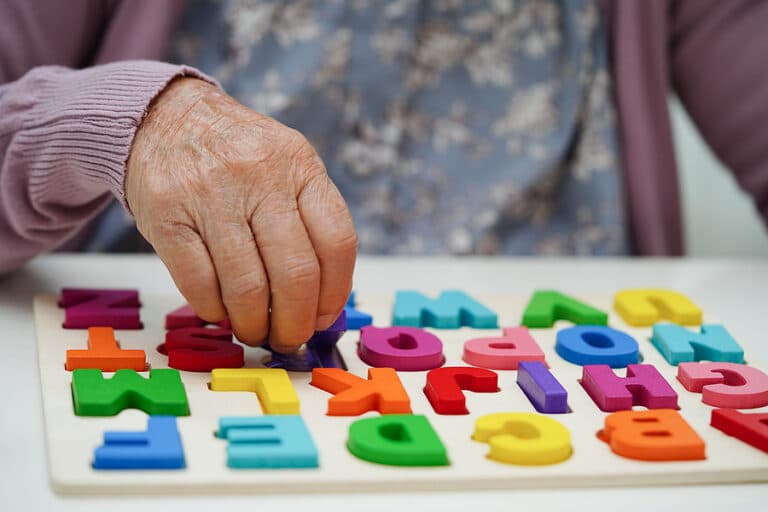Have you noticed your elderly loved one forgetting more and more things lately? Were you surprised she completely forgot her favorite granddaughter’s birthday, or maybe she tried to make one of her famous cakes and forgot to put the eggs in it? These types of missteps as a person gets older may be cause for concern as many immediately believe the next step for their elderly loved one is Alzheimer’s Disease, but it may be that they’re just dealing with Mild Cognitive Impairment.
What is Mild Cognitive Impairment?
Mild Cognitive Impairment (MCI) lives in the middle ground between the general decline in memory that occurs with age, and dementia. It still is a serious condition that needs to be addressed, but it doesn’t always progress the way diseases like dementia and Alzheimer’s do. Your loved one may need extra help in certain areas of cognitive functioning but unless the disease develops into dementia, she can still live independently with MCI.
Mild Cognitive Impairment Symptoms
Your loved one might be noticing some of these symptoms. They could be causing frustration since her brain is no longer functioning at peak performance. Certain tasks take much longer than they used to, and others become confusing or frustrating. Here are some common symptoms you and your loved one can look for if you suspect MCI.
- She easily loses her train of thought. She might find it harder to follow a movie plot or remember the storyline of a book.
- She misses important appointments and events.
- She struggles to follow instructions like following a recipe or putting together a complicated puzzle.
- She forgets to finish a task. She might leave the pizza in the oven too long or forget to walk the dog.
- She gets lost in familiar places more often. Driving may become frightening, especially in inclement weather or at night.
- She may exhibit emotional distress by being depressed, anxious, or angry.
Home Care Assistance for Those with MCI
If your loved one has been diagnosed with MCI but still desires to live independently in her home, the good news is that she can do that. She just might need a little extra help with the responsibilities that she now struggles with occasionally. Friends and family can step in but having a consistent home care assistance provider to visit and help with tasks is the best way to help her to continue to live safely and successfully.
Here are just a few areas a home care assistance provider can help your loved one with.
- Meal Prep. If memory issues and the inability to follow a recipe are making mealtime stressful, a home care assistance provider can help her prepare meals that are still healthy and delicious.
- Transportation. MCI may make getting behind the wheel dangerous for your loved one. When that happens, a home care assistance provider can help with transportation, ensuring that your loved one gets to and from appointments without any problems.
- Pet Care. Pets provide comfort and companionship, but they also have specific care needs. If your loved one is struggling with remembering to complete those care needs, a home care assistance provider can step in and help with those needs, so all your loved one needs to worry about is getting enough snuggles in.
There are many other areas a home care assistance provider can assist with as well. They will customize their care to match your loved one’s needs.
If you or an aging loved one are considering hiring home care assistance in Anderson, SC, contact Heart of the Carolinas Home Care at (864) 990-4345.
Heart of the Carolinas Provides Senior Home Care Services in Greenville, Mauldin, Greer, Spartanburg, Anderson, Pawleys Island, Myrtle Beach, Hilton Head Island, Charleston, Columbia, Simpsonville, South Carolina, and surrounding areas.
- How Home Care Supports Seniors Who Are Hard of Hearing - March 28, 2025
- Why Seniors Should Consider Companion Care At Home - March 10, 2025
- What Happens As Seniors with Dementia Lose Competence? - February 26, 2025

